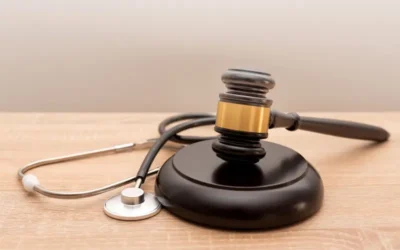Medical records management is important to make sure that the health records of patients that may have a legal, historical, and monetary value are preserved properly. Also, medical records that have no value must be discarded appropriately. Organized medical records facilitate medical chart reviews that have a medical as well as legal relevance.
Proper medical record organization and management is vital in the present scenario when there is increased competition among facilities to provide the best patient experience. Proper management of the medical records helps providers ensure focused care for their patients and better healthcare outcomes.
Proper Medical Record Management Is Vital
Patient information has to be governed on the basis of certain established procedures and protocols. Medical records have to be properly stored, secured, and maintained. They have to be retained for the specific retention period specified by each U.S. state, and once this period is over they have to be destroyed. Mismanagement of medical records, even if small or apparently insignificant, can put patients at risk.
- When the records are not properly managed, it can lead to concerns such as medication errors, wrong or missed diagnosis, lapses in treatment and other issues.
- Poorly managed medical records can also compromise patient privacy. Any oversight on the part of the provider could put patient privacy at risk. If there is a healthcare data breach, patients lose confidence in their providers and may be hesitant to share their personal details with the providers.
- A very serious consequence of poor medical record management are the heavy fines or lawsuits that hospitals, medical practices and other healthcare entities have to face for medical data breach.
- Poor medical records could cause medical billing errors and loss of revenue for the practice. Disorganized record keeping could also result in loss of productivity, and failure to complete even necessary tasks.
What Are the Characteristic Features of a Good Medical Record Management System?
- Easy and fast access and timely medical record retrieval capabilities
- Adequate implementation and management of proper controls to ensure quality, accuracy, and confidentiality of the medical records
- Proper medical record organization and labeling that ensures an accurate medical chart
- Robust data security measures to prevent unauthorized usage, tampering, and data theft
- Compliant with all relevant legal regulations
- Comprehensive, secure record disposal measures
Ensuring Proper Medical Records Management
- Have a clear vision of your security policies and procedures. These policies must be updated as required in keeping with changes in the organization that could have an impact on the handling or security of patient healthcare data. Make sure that any medical record management program engages the entire organization.
- Make sure that all employees are trained properly. This will help prevent mismanagement of sensitive health data. Careless or untrained employees could cause serious cybersecurity incidents.
- All medical records must be properly labeled so that they can be efficiently monitored. When there is a comprehensive indexing system that covers all types of records, it makes searching more efficient, and helps save time and money.
- Automate essential and time-intensive processes, which will help avoid costly human errors. When an organization has a centralized medical records management program, it can improve accuracy, ensure patient safety and data consistency.
- Improve data security with the help of features such as audit trail in the case of electronic health records. paper records should be kept securely locked in a strong room with restricted access. If the records are stored in an off-site location, the storage facility must be a certified and climate-controlled one.
- Conduct self audits to make sure that the measures put in place are indeed helping to protect patient privacy. Performance and compliance monitoring, along with frequent self audits will help ensure compliance and avoid heavy fines.
Medical facilities must view medical record management as a very important, necessary process. Proper training must be given to employees and efforts made to create a compliant, efficient policy. As mentioned above, organizations can take many steps to safeguard themselves and their consumers.
Proper medical records management helps with reduced level of record keeping redundancies, reduced costs associated with storage equipment and supplies, and facilitates important legal processes such as medical chart review. Proper management of the medical records enhances the credibility of the provider, and enables timely access to the required medical information.




